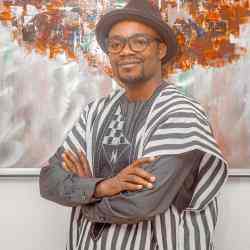Introduction
Ronaldo Lima de Oliveira is working both to prevent the destruction of the rain forest and to guarantee the survival of forest communities by creating a model for sustainable agro-economical activities in Brazil's recently-created "extractive reserves." The strategies that he is developing will allow people living in the reserves to meet their food needs and to produce a surplus to be sold in the market, thus enabling them to buy other goods necessary for their family's survival in the forest.
The New Idea
Brazil's extractive reserves are now facing a critical situation. Created and legally protected under a law inspired by Chico Mendes' struggle, the reserves are in danger of foundering because of the absence of effective patterns for forest use that combine forest conservation and sustainable ecological conditions with adequate livelihoods for the local population. If a model of viable sustainable development is not soon offered to the forest communities, the reserves will be transformed into economically inactive areas, abandoned both by their current residents and by the government, as has already occurred in other ecological reserves created by the governmental initiatives. The abandoned areas would then be prime candidates for occupation by predatory farmers, who would burn the remaining forest and raise cattle on the land thus ravaged. Ronaldo's project is attempting to prevent that disastrous outcome through a combination of still experimental economic activities in the areas of subsistence agriculture, animal breeding, fruit-growing, tropical silviculture, and the development of basic infra-structure (including housing, education, sanitation, and health) that will attend the most pressing needs of the reserves' communities.His principal goal, and the essence of his new idea, is the development and implementation of a model of agricultural activity in the Amazon region that is economically viable, ecologically appropriate, and easily assimilated by the people of the forest. In his view, attending to the basic consumption needs of the people of these reserves is the first step of a process that will guarantee the self-sufficiency of the communities and, consequently, the survival and success of the extractive reserves. Ronaldo's model offers considerable promise for revitalizing and transforming the Amazonian economy from one that is clearly not self-sustaining to one that ensures the survival of indigenous small producers and rubber-tapping communities through the institution of culturally sensitive and viable economic alternatives. The economic measures that he proposes as supplements to extractive activities–including farming, raising small live stock, harvesting fruit trees, producing cultivated products such as guava paste, building homes, and developing the community infrastructure - will help assure a basic level of economic security for people currently living on the extractive reserves.
The Problem
Many of the people living in Brazil's extractive reserves are unable to meet their most basic nutritional needs with what they earn from rubber tapping, nut gathering, or other extractive activities. Unfortunately, moreover, as the descendants of people who were brought to the forest by the great rubber companies a hundred years ago and prohibited from engaging in farming, they lack the agricultural know-how required for farming the already deforested areas around them.Since the end of World War II, Brazil's major rubber-producing firms have become increasingly non-competitive in the world market, and their former employees and their families have been left to eke out whatever modest earnings they can. Under recently enacted legislation, communities in areas designated as "extractive reserves" are guaranteed the right to remain in the forest and to extract rubber (and other commodities). Unfortunately, however, with the low prices that prevail in the international rubber market, their earnings have fallen well below survival levels. They have thus been forced, in much of the region, to slash and burn the forest land in feeble attempts to produce rice, beans, corn, manioc and other crops for survival purposes. But those efforts have been hindered, and the raising of livestock discouraged, by a lack of basic agrarian skills.The vitality of forest communities has also long been impeded by inadequate communication, transportation, education, and health care systems, by a cultural background of almost total dependence on "patrons," or legal owners of the land, and, until recently, by the absence of a legal and economic structure appropriate for multiple forest uses. Not surprisingly, therefore, the people have become gravely impoverished and the environment has been correspondingly threatened.At long last, the extractive reserves now in place create an appropriate framework for sustained life in the Amazon, providing all the overlapping users (hunters, rubber tappers, Brazil nut gatherers, etc.) legal entitlement to their use of the forest. The new framework encourages each forest user to rationalize production and to seek out productive collaborative arrangements with other forest dwellers. But the extractive reserves are new, still very much on trial, and have yet to prove their economic viability. In that setting, attempts to help forest residents develop compatible forms of agriculture which would complement their extractive work have a vital role to play in assuring the stability and economic viability of forest communities.
The Strategy
Ronaldo' strategy has five major components: subsistence agriculture and animal domestication; fruit production; tropical silviculture; basic infra-structure development; and an extension program to spread the methodology throughout the Amazonian region. Ronaldo's first goal is to help meet the immediate nutritional needs of the region's people. In pursuit of that goal he has developed viable agricultural techniques that can be easily understood and replicated. For the last three years, recognizing that forest dwellers must be shown that these techniques work before they will invest their energies and hopes into them, he has successfully implemented them on his own property as a demonstration project. With seeds collected from local rubber tappers, he has produced crops of rice, corn, and beans many times the size of typical production. He has also met with success in growing fruit trees that produce more than enough to meet a family's needs and in introducing coffee, which is heavily consumed but rarely cultivated by local families. He has thus been able to demonstrate to local rubber tappers that it is possible for them not only to provide a substantial portion of their own families' food consumption but also to produce a marketable surplus. And he has succeeded in doing so in sustainable ways on already deforested areas, thereby ending the need to burn more of the virgin forest.Responding to the declining value of the rubber produced by the Amazon tappers, Ronaldo is also working to reforest damaged areas with higher-market-value species such as Brazil nut trees.In addition, with an eye toward improving basic infrastructure in useful and affordable ways, Ronaldo is demonstrating effective and inexpensive potable water and energy systems that utilize durable and quickly regenerated woods. He is also working on improving transportation, which is nearly impossible during the rainy season and greatly hinders efforts to market forest communities' products.Ronaldo's final concern is the dissemination of his model over a broader geographical area. His methods are proving successful and have begun to be widely adopted locally. But he now wants to share his accumulated experience and understanding with a larger segment of Brazil's forest communities. In addition to training additional families to utilize his simple agricultural alternatives and serve as "multipliers," Ronaldo hopes to develop a user-friendly instruction manual that will help make his insights available to a far broader audience.
The Person
Ronaldo is a quiet, introspective man. Since leaving the northeast some twenty years ago to work in the Amazon region, he has been engaged in a wide range of governmental and non-governmental initiatives, witnessing their many shortcomings, which stem in most instances from inadequate cultural sensitivity. He worked as a consultant for Oxfam and later with rubber tappers in the area where Chico Mendes first introduced the extractive reserves concept. In the mid-1980s, he bought a small plot of land adjacent to the Chico Mendes reserve and began experimenting with various agricultural production possibilities there. Working from that base, he is now dedicating his full energies to the refinement, implementation, and spreading of his model for sustaining the forest and its people.




